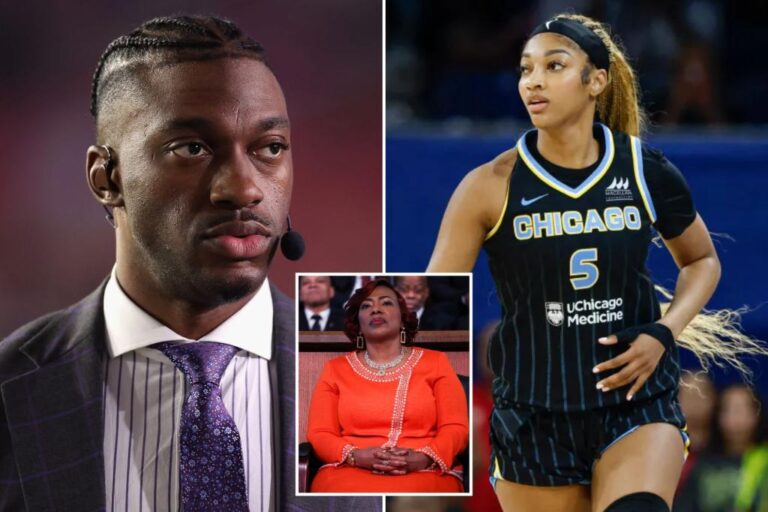Drama Unfolds Between WNBA Star Angel Reese and Robert Griffin III: A Deep Dive into the Controversy
The recent exchange between WNBA sensation Angel Reese and former NFL quarterback Robert Griffin III has stirred significant attention, prompting reactions from various public figures, including Dr. Bernice King, daughter of the legendary civil rights leader Martin Luther King Jr. This article explores the nuances of their feud and the implications it has within the context of sports, race, and media.
Background of the Feud
The drama started with Griffin’s comments regarding Reese’s alleged animosity toward another athlete, Caitlin Clark. He stated that someone within Reese’s "inner circle" disclosed that she "hates" Clark due to the constant media comparisons between them. This claim sparked a multitude of reactions online and raised questions about the narrative surrounding both athletes.
Key Points of Contention
-
Racist Imagery: Griffin initially came to Reese’s defense after she faced a racist depiction in the popular video game, NBA 2K26. He adamantly stated there is “no place for racism,” emphasizing that such portrayals should never happen.
- Personal Attacks: Griffin clarified his stance, asserting that his comments regarding Reese’s feelings toward Clark were based on basketball opinions and not personal attacks.
Bernice King’s Intervention
Dr. Bernice King intervened by commenting on Griffin’s post, emphasizing the importance of dialogue between differing perspectives. She stated, “I agree. That’s why I suggest you call Angel Reese and stop posting about her.” This response gained traction on social media, drawing further attention to the situation.
- Viral Reaction: Reese shared a post mocking Griffin’s need for guidance from King, which showcased the ongoing tensions and polarized opinions.
Counterclaims: A Divided Response
Angel Reese and Her Mother Respond
Reese quickly dismissed Griffin’s claims, asserting via social media that the accusations were misleading and promoting drama. Her mother supported this narrative, labeling Griffin’s source as unreliable.
- Quote from Reese: “Lying on this app when everybody knows the first and last name of everybody in my circle for clout is nasty work.”
Griffin’s Retaliation
Griffin responded, reiterating his intention to support Reese against racism, rather than contribute to the conflict. He stated:
“I just want to have fun, tell the truth, and celebrate sports. But I won’t pretend or lie just to protect feelings.”
Broader Implications
Race and Sports
This incident sheds light on the intersection of race and sports, particularly in how athletes are depicted. Griffin emphasized that “some people made it about race, but I never did and never will,” indicating a desire for unity rather than division.
Media Influence
Both athletes’ popularity has been magnified by media coverage, leading to public perception shaping their interactions and reputations.
Discussion Points:
- How does media representation affect athletes of color?
- What role do public figures play in addressing misconceptions in sports narratives?
Conclusion
The ongoing dialogue between Angel Reese and Robert Griffin III illustrates a multifaceted issue that encompasses not only sports but also race and media dynamics. As discussions continue, the involvement of influential figures like Bernice King highlights the importance of constructive conversation over divisive rhetoric. Fans and commentators alike must navigate the complexities of these interactions while promoting understanding and unity.
For further reading on the impact of race in sports, check out articles from sources like ESPN and Sports Illustrated.
Conversations around these issues only grow more significant as the athletes and the narratives surrounding them evolve.


